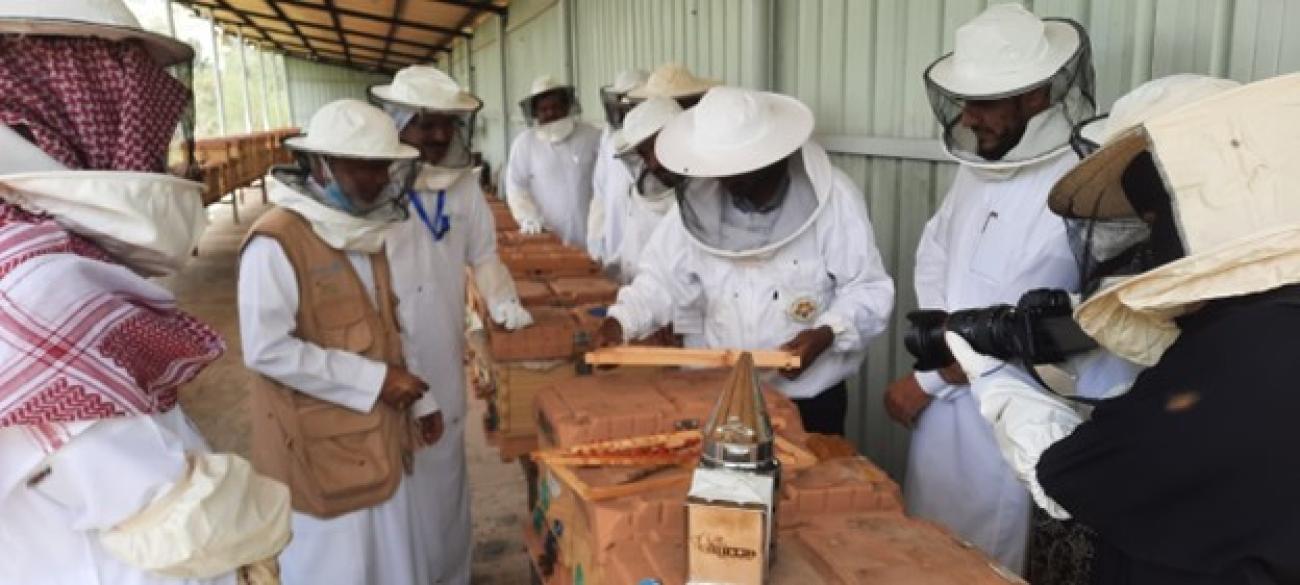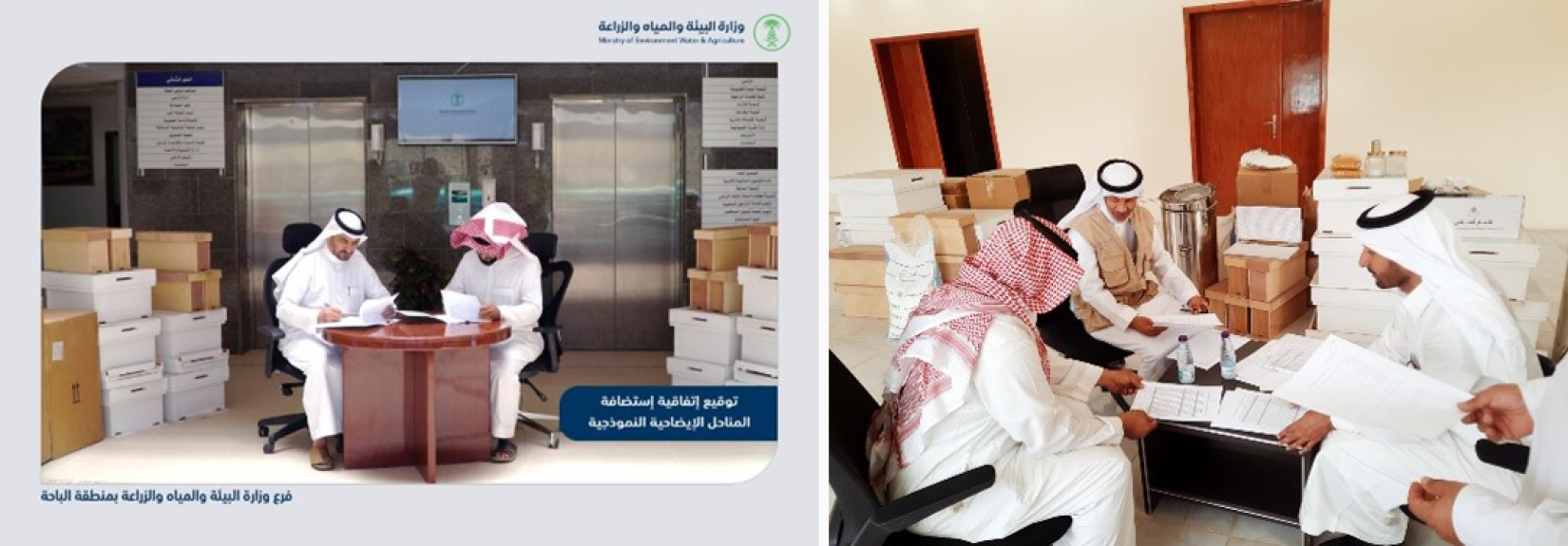Beekeeping Technology Dissemination Through the Model Beekeepers by FAO-KSA

Beekeeping is an ancient and widely practiced activity across the Kingdom of Saudi Arabia.
A significant proportion of beekeepers in the country still use traditional hives and methods with low adoption of improved beekeeping technologies and practices. The Sustainable Rural Agricultural Development (SRAD) project is working towards increasing the adoption of improved technologies and good beekeeping practices (GBP), that can improve the honeybee health, honey production and income of the smallholder beekeepers through strengthening the beekeeping extension approaches. Towards this end, the SRAD project has started establishing and operating demonstration apiaries and providing hands-on training to beekeepers. Project activities are underway in six regions of the Kingdom for demonstrating organic beekeeping practices and the introduction of modern beekeeping technologies. In accordance with guidelines on good extension methods, a set of beekeepers per region, have been selected in Al Baha, Asir and Jazan for demonstration in modern beekeeping technologies and in Makkah, Medina, and Hail for organic beekeeping practices.
The beekeepers have received essential beekeeping equipment, including modern beehives, honey extractors, honey storage tanks, organic beeswax foundation sheets, queen excluders, nuclei boxes, smokers, equipment for queen rearing etc. for the pilot demonstration apiaries. In collaboration with MoEWA, training was organized in June- July 2022, on good practices of organic beekeeping, honeybee queen rearing, colony multiplication, honeybee pest and disease prevention methods.

A Beekeeper-to-Beekeeper Extension (B2BE) is being promoted as part of the SRAD program. In this approach, model beekeepers who have sufficient beekeeping knowledge and skills have been selected and will assist their fellow beekeepers in spreading beekeeping technologies and good practices through training, sharing of experiences and advisory services. These beekeepers are encouraged to act as role models for other beekeepers and community knowledge workers in order to spread good beekeeping practices. Adopting beekeeper-to-beekeeper extension will curb the frequently cited turnover of extension workers and the shortage of adequate extension workers at the field level as the main constraints of having stable extension workers at the field level.
To further expand the B2BE to other beekeepers, small groups of beekeepers are being organized under each model beekeeper. Subsequently, some of these beekeepers will be able to conduct demonstrations on beekeeping technologies and good practices. By using this approach with strong follow-up, beekeeping technologies and good practices will spread more quickly in their respective locations. Thereby, the model beekeepers can successfully play their role in scaling up demonstration apiary activities, and address a larger group of beekeepers across the kingdom.


